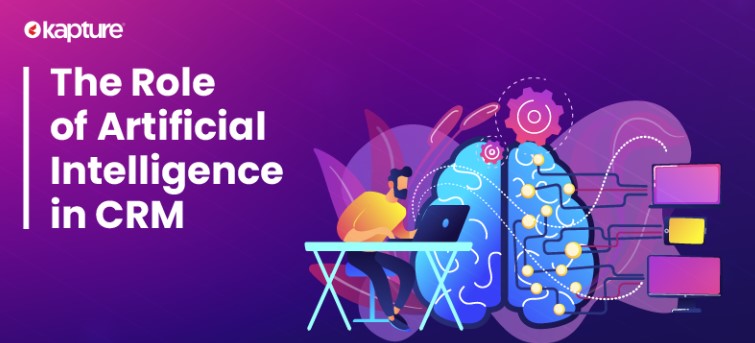Artificial intelligence (AI) is transforming the way businesses approach customer relationship management (CRM). By leveraging machine learning algorithms, businesses can gain valuable insights into customer behavior and preferences, provide personalized solutions, and improve the customer experience. In this article, we will explore the role of AI in CRM and how it can enhance customer relationships.
1. Data Analysis
AI can help businesses analyze large amounts of customer data quickly and accurately. By analyzing customer behavior and preferences, businesses can identify patterns and trends that provide valuable insights into customer needs and challenges. This information can then be used to create personalized marketing campaigns, product recommendations, and customer service solutions.
2. Personalization
AI can help businesses provide personalized solutions that meet the customer’s specific needs and challenges. By using machine learning algorithms to analyze customer data, businesses can create customized marketing campaigns, product recommendations, and customer service solutions. This creates a positive customer experience and increases customer loyalty and satisfaction.
3. Chatbots
AI-powered chatbots can help businesses provide 24/7 customer service support that is responsive, accurate, and personalized. By using natural language processing (NLP) algorithms, chatbots can understand and respond to customer inquiries and complaints in real-time. This creates a positive customer experience and increases customer satisfaction and loyalty.
4. Sales Forecasting
AI can help businesses forecast sales and revenue by analyzing customer behavior and preferences. By using machine learning algorithms to analyze customer data, businesses can predict future customer behavior and adjust their sales and marketing strategies accordingly. This creates a more efficient and effective sales process and increases revenue and growth.
5. Sentiment Analysis
AI can help businesses analyze customer sentiment on social media platforms and other online channels. By using NLP algorithms to analyze customer comments and feedback, businesses can identify areas for improvement and adjust their CRM strategy accordingly. This creates a more positive customer experience and increases customer satisfaction and loyalty.
Here are some best practices for implementing AI in CRM:
- Choose AI tools that align with your specific requirements and industry.
- Use AI to supplement, not replace, human interactions with customers.
- Regularly analyze and adjust your CRM strategy based on AI-generated insights.
- Provide comprehensive training to all employees to ensure successful adoption and use of AI technology.
- Be transparent with customers about how AI is being used in your CRM strategy.
In conclusion, AI is transforming the way businesses approach customer relationship management. By using machine learning algorithms to analyze customer data, provide personalized solutions, and improve the customer experience, businesses can increase customer satisfaction and loyalty, and drive growth and revenue. By following best practices for implementing AI in CRM, businesses can create a successful AI-powered CRM strategy that enhances customer relationships.
Here are some FAQs related to the role of AI in CRM:
-
What are some benefits of using AI in CRM?
Some benefits of using AI in CRM include more personalized marketing campaigns and product recommendations, improved customer service through chatbots and sentiment analysis, and increased sales forecasting accuracy.
-
How can businesses ensure that their AI-powered CRM strategy is ethical?
Businesses can ensure that their AI-powered CRM strategy is ethical by being transparent about how AI is being used, ensuring that AI tools are not biased, and providing human oversight for AI-generated decisions.
-
What are some examples of AI-powered CRM tools?
Some examples of AI-powered CRM tools include Salesforce Einstein, Zoho CRM, HubSpot, and Pega.
-
How can businesses ensure that their employees are properly trained to use AI technology?
Businesses can ensure that their employees are properly trained to use AI technology by providing comprehensive training, resources, and support. This includes regular training sessions, user guides, and access to technical support.
-
How can businesses measure the success of their AI-powered CRM strategy?
Businesses can measure the success of their AI-powered CRM strategy by tracking metrics like customer satisfaction, customer engagement, and revenue growth. By regularly analyzing these metrics and adjusting their strategy accordingly, businesses can ensure continued success.
In conclusion, the role of AI in CRM is becoming increasingly important as businesses strive to provide personalized solutions and improve the customer experience. By following best practices for implementing AI in CRM, businesses can create a successful AI-powered CRM strategy that enhances customer relationships and drives growth and revenue.
